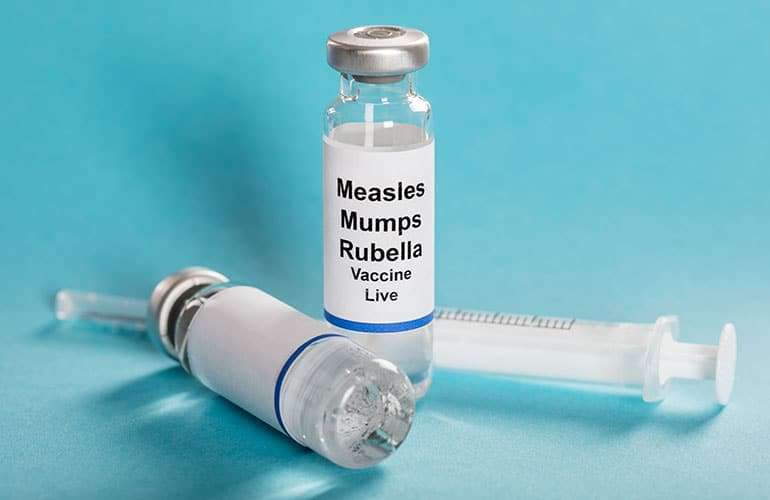Soybeans are a type of legume native to Asia. Soy has been part of traditional Asian diets for thousands of years. In fact, there’s evidence that soybeans were grown in China as early as 9,000 BC (1Trusted Source).
Today, soy is widely consumed, not only as a source of plant-based protein but also as an ingredient in many processed foods.
However, soy remains a controversial food — some praise its health benefits, while others claim it could be bad for you.
This article examines the evidence for and against eating soy.
What Is Soy and What Are the Different Types?
Soybeans are a type of legume that can be eaten whole or processed into a variety of forms.
Whole Soy Products
Whole soy products are the least processed and include soybeans and edamame, which are immature (green) soybeans. Soy milk and tofu are also made from whole soybeans (2Trusted Source).
While mature soybeans are rarely eaten whole in the Western diet, edamame is a favorite high-protein appetizer in Asian cuisines.
Soy milk is made by soaking and grinding whole soybeans, boiling them in water and then filtering out the solids. It’s commonly used as a milk alternative by people who cannot tolerate dairy or wish to avoid milk.
Tofu is made by coagulating soy milk and pressing the curds into blocks. It’s a common source of plant-based protein in vegetarian diets.
Fermented Soy
Fermented soy products are processed using traditional methods and include soy sauce, tempeh, miso and natto (2Trusted Source).
Soy sauce is a liquid condiment made from fermented soy, roasted grains, salt water and a type of mold.
Tempeh is a fermented soy cake that originated in Indonesia. Though not as popular as tofu, it’s also commonly eaten as a source of protein in vegetarian diets.
Miso is a traditional Japanese seasoning paste made from soybeans, salt and a type of fungus.
Soy-Based Processed Foods
Soy is used to make several processed foods, including vegetarian and vegan meat substitutes, yogurts and cheeses.
Soy flours, texturized vegetable protein and soybean oil are used in many packaged foods.
Soy Supplements
Soy protein isolate is a highly processed derivative of soy made by grinding soybeans into flakes and extracting the oil. The flakes are then mixed with alcohol or alkaline water, heated, and the resulting soy concentrate is spray-dried into a powder (3Trusted Source).
Soy protein isolate is available in many protein powders and also added to many processed foods, such as protein bars and shakes.
Other soy supplements include soy isoflavones, which are available in capsule form, and soy lecithin, which can be taken in capsules or as a powder.
Summary
Soy includes a wide variety of foods, including edamame, products made from whole soybeans, fermented soy foods, more processed soy-based foods, as well as supplements.
Contains Several Nutrients
Soy is a good source of several important nutrients. For example, one cup (155 grams) of edamame contains (4):
Calories: 189
Carbs: 11.5 grams
Protein: 16.9 grams
Fat: 8.1 grams
Fiber: 8.1 grams
Vitamin C: 16% of the Reference Daily Intake (RDI)
Vitamin K: 52% of the RDI
Thiamine: 21% of the RDI
Riboflavin: 14% of the RDI
Folate: 121% of the RDI
Iron: 20% of the RDI
Magnesium: 25% of the RDI
Phosphorus: 26% of the RDI
Potassium: 19% of the RDI
Zinc: 14% of the RDI
Manganese: 79% of the RDI
Copper: 19% of the RDI
Soy also provides small amounts of vitamin E, niacin, vitamin B6 and pantothenic acid (4).
Moreover, it contains, prebiotic fiber and several beneficial phytochemicals, such as plant sterols and the isoflavones daidzein and genistein (5Trusted Source).
Summary
Soy is high in plant-based protein and a good source of many nutrients and phytochemicals.
Potential Health Benefits
The unique phytochemicals in soy may offer several advantages to health.
May Help Lower Cholesterol
Several studies suggest that soy may improve cholesterol levels, especially “bad” LDL cholesterol.
In an extensive review of 35 studies, researchers found that eating soy products reduced LDL cholesterol and total cholesterol while raising “good” HDL cholesterol. These improvements were greater in people with high cholesterol levels (6Trusted Source).
However, the researchers observed that soy supplements didn’t have the same cholesterol-lowering effect as eating soy foods (6Trusted Source).
In another review of 38 studies, researchers noted that an average soy intake of 47 grams per day was linked to a 9.3% decrease in total cholesterol and a 13% decrease in LDL cholesterol (7Trusted Source).
Fiber seems to play an important role in cholesterol-lowering effects of soy..
In one study, 121 adults with high cholesterol took 25 grams of soy protein with or without soy fiber for eight weeks. The soy with fiber reduced LDL cholesterol more than twice as much as soy protein alone (8Trusted Source).
May Improve Fertility
Soy may improve fertility outcomes in women who are trying to conceive or undergoing fertility treatments.
In a study in 36 women who hadn’t had a period in six months, those who took 6 grams a day of black soybean powder had higher rates of ovulation and menstrual cycles compared to those who did not take soy (9Trusted Source).
Another study in over 200 women receiving in vitro fertilization (IVF) treatments showed that those who took 1,500 mg of soy phytoestrogen a day had higher rates of implantation and pregnancy compared to those who did not take soy (10Trusted Source).
A third study demonstrated that soy had a protective effect against BPA, a chemical found in plastic, which may have negative impacts on fertility. Women who ate soy before IVF were more likely to have a successful pregnancy than those who did not (11Trusted Source).
Furthermore, soy intake by the prospective father does not seem to negatively impact pregnancy rates in women receiving IVF (12Trusted Source).
May Reduce Menopause Symptoms
Isoflavones are a class of phytoestrogens found naturally in soy that act like a weak estrogen in the body.
Estrogen levels decrease during menopause, leading to symptoms like hot flashes. Since soy acts as a natural estrogen, it may help reduce these symptoms.
Studies confirm soy’s beneficial role in menopause.
In a review of 35 studies, soy isoflavone supplements raised estradiol (estrogen) levels in postmenopausal women by 14% (13Trusted Source).
Lastly, in another review of 17 studies, women who took an average dose of 54 mg of soy isoflavones a day for 12 weeks had 20.6% fewer hot flashes and experienced a 26.2% decrease in symptom severity compared to at the start of the study (15Trusted Source).
Summary
Soy has been shown to lower cholesterol, improve fertility outcomes and reduce menopause symptoms.
Possible Negative Effects on Health
While soy has several health benefits, its effects on other conditions are unclear.
Effect on Breast Cancer Is Unknown
Soy contains isoflavones, which act like estrogen in the body. Since many breast cancers need estrogen to grow, it would stand to reason that soy could increase breast cancer risk. However, this isn’t the case in most studies.
In a review of 35 studies on soy isoflavone intake and breast cancer incidence, higher soy intake reduced breast cancer risk in both pre- and postmenopausal Asian women.
For women in Western countries, one study showed soy intake had no effect on the risk of developing breast cancer (16Trusted Source).
This difference may be due to the different types of soy eaten in the Asian compared to the Western diet. Soy is typically consumed whole or fermented in Asian diets, whereas in Western countries, soy is mostly processed or in supplement form.
In an animal study, rats fed fermented soy milk were 20% less likely to develop breast cancer than rats not receiving this type of food. Rats fed soy isoflavones were 10–13% less likely to develop breast cancer (17Trusted Source).
Therefore, fermented soy may have a more protective effect against breast cancer compared to soy supplements.
Additionally, soy has been linked to a longer lifespan after breast cancer diagnosis.
In a review of five long-term studies, women who ate soy after diagnosis were 21% less likely to have a recurrence of cancer and 15% less likely to die than women who avoided soy (18Trusted Source).
Impact on Thyroid Function
Soy contains goitrogens, substances that may negatively impact the thyroid by blocking iodine absorption.
Test-tube and animal studies have shown that soy isoflavones block the production of thyroid hormones (19Trusted Source, 20Trusted Source).
Studies on the impact of soy on thyroid function in humans suggest it may not have a significant impact.
In a review of 14 studies, soy had little to no effect on thyroid function, and the authors concluded that people with hypothyroid disease do not need to avoid soy as long as their iodine intake is adequate (21Trusted Source).
Plus, two randomized trials in postmenopausal women found that up to 120 mg a day of soy isoflavones had no significant effect on thyroid hormone production (22Trusted Source, 23Trusted Source).
Effect on Male Sex Hormones
Because soy contains phytoestrogens, men may worry about including it in their diet.
However, studies do not indicate that soy negatively impacts the production of testosterone in men.
In a review of 15 studies in men, intake of soy foods, protein powders or isoflavone supplements up to 70 grams of soy protein and 240 mg of soy isoflavones per day did not affect free testosterone or total testosterone levels (24Trusted Source).
What’s more, soy may reduce the risk of prostate cancer in men.
In a review of 30 studies, high soy consumption was linked to a significantly lower risk of developing the disease (25Trusted Source).
Most Soy Contains GMOs
More than 90% of the soy produced in the US is genetically modified (26Trusted Source).
There’s much debate over the safety of genetically modified organisms (GMOs). More long-term scientific studies are necessary to determine their effects in humans and in what quantity they’re safe (27Trusted Source).
Additionally, most genetically modified soy products withstand the pesticide glyphosate which is controversial.
Certain GMO soy products have been found to contain glyphosate residues and have a poorer nutritional profile compared to organic soybeans (28Trusted Source).
Therefore, to avoid GMOs and exposure to glyphosate, stick with organic soy.
Summary
Animal studies suggest that soy negatively impacts breast cancer, thyroid function and male hormones, but human studies suggest otherwise. The majority of soy is genetically modified, so eat organic soy if you want to avoid GMOs.
The Bottom Line
Soy offers several benefits, such as improving cholesterol levels, fertility outcomes and menopause symptoms.
Yet, it remains controversial as weak evidence from animal studies suggests that it may be linked to breast cancer, poor thyroid function and interference with male hormones.
However, studies in humans show different results.
Overall, the benefits of incorporating soy into your diet most likely outweigh any potential risks, so feel free to eat whole or fermented soy foods in moderation.













Leave a comment